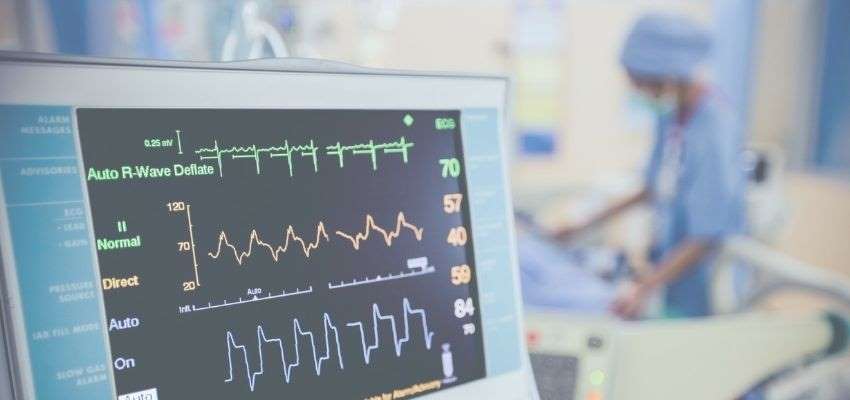Recovery After ICU stay becomes as critical as recovery during intensive care. Life after ICU needs great care for regaining physical strength, dealing with common hospital-acquired infections and post ICU syndrome (in some cases) and recovering from Intensive care unit-acquired weakness and muscle wasting. Patients who are recovering from critical illness are faced with muscle wasting. That is why great care and attention needs to be paid to their food intake. This article focuses on the potential role of nutrition in attenuating muscle loss in critical illness.
Dietitian Pooja Lakhani explains impact of ICU stay on patient’s body and how proper nutrition can enhance recovery after ICU stay.
Nutrition and post-ICU Recovery
Advances in medical treatment mean that more and more sick patients now survive. However, increased survival rates are associated with greater proportions of people experiencing long-term complications following hospitalisation, admission to ICU, prolonged illness and long term treatments or therapies. Data suggests that disability in physical function, cognition, and quality of life may last up to five years after an intensive care unit (ICU) admission.
One of the major factors contributing to this long-term disability is lean body muscle wasting.
Lean body Muscle Mass and its Role in Recovery
Lean body muscle mass has an important role in the structural maintenance of the body and movement. It is also required for maintaining immune function and day to day physiological processes, that facilitate the body’s ability to respond and recover from illness.
In cases of prolonged illness that require ICU admission, rapid and significant losses of lean body muscle mass have been observed. These are also responsible for worsening of physical function and overall strength of the patient.
This muscle wasting is a result of the muscle protein breakdown exceeding the muscle protein synthesis. While reasons driving this breakdown are largely unknown, adequate intake of protein during and long-after a prolonged illness, has shown to prevent the loss of lean body mass, at the very least.
Lean body muscle mass is known to be highly responsive to nutrition and physiotherapy interventions.
Nutrition delivery during the continuum of ICU Stay
During the ICU stay, patients often receive lesser nutrition than what is prescribed and recommended by the international clinical guidelines.
Poor nutrition during ICU stay may occur due to the following factors:
- delay in initiation of nutrition therapy
- availability of a qualified dietitian
- gastrointestinal intolerance to food or
- tube feeding and fasting for procedures
There is growing research and evidence showing that nutrition delivery remains compromised when patients are discharged from ICU to the ward, compounded by poor appetite, taste changes, disliking towards hospital food and swallowing difficulties.
As a result, patients are at a high risk of significant deficiencies in energy, protein, vitamin and minerals delivery throughout the whole hospital admission, which may negatively impact muscle mass.
Role of Nutrition in attenuating Muscle loss
Can more protein help with recovery from an ICU stay?
Several nutritional strategies have been proposed to counteract muscle loss in critical illness. Two small research studies from Australia indicate greater protein intake reduce lean muscle mass loss when seen on sonography of thigh and calf muscles.
A lot of other researches have also shown that adequate protein intake which is 1.5 – 2 times of the body weight, does help in reducing complications that one may face during their stay in ICU as well as post discharge.
Protein for Post ICU Recovery
Various protein sources that can be easily incorporated in the diet include milk and milk products like cottage cheese, curd, buttermilk, desserts etc. along with non-vegetarian sources like eggs, poultry, fish and chicken. These two categories form high biological value sources of protein; which means more than 90% of the protein from these sources can be used by the body.
Other vegetarian sources of protein like pulses, lentils, legumes, whole grains, nuts and oilseeds etc also form an important source of protein particularly for vegetarians.
Rehabilitation after critical illness
Very often, specially after discharge from ICU, patients face problems in being able to maintain adequate dietary intake. These include:
- Loss of taste,
- loss of appetite,
- difficulty in chewing and swallowing,
- sometimes even lack of resources.
In such cases, it may take a very long time for patients to recover and perform activities of daily living; the way they used to do before illness.
Many protein, multivitamin and nutritional supplements are available in the market to enhance dietary intake and enhance recovery. However these supplements need to be consumed under supervision to prevent potential side-effects. One must consult a qualified dietitian for a detailed nutritional assessment, personalised nutritional care and meal planning, monitoring of dietary intake and prescription of nutritional supplements, if necessary.
Recovery does not merely mean ‘Discharge from Hospital’, the true sense of recovery is in being able to feel ‘Healthy or Even Healthier Than Before’.
RespiRehab propagates interdisciplinary approach of pulmonary rehabilitation to promote healing from within. If you or a loved one has recently been hospitalised for long, discharged from ICU and would like to learn more about recovering with RespiRehab experts, call us at +91 9920991647 or ask for call back by clicking here.
Scientific References:
[1] Long-term complications of critical care; Sanjay V Desai 1, Tyler J Law, Dale M Needham, PMID: 20959786 DOI: 10.1097/CCM.0b013e3181fd66e5
[2] Relationship Between ICU Length of Stay and Long-term Mortality for Elderly ICU Survivors; Vivek K. Moitra, MD, Carmen Guerra, MPH, Walter T. Linde-Zwirble, and Hannah Wunsch, MSc, MD. Crit Care Med. 2016 Apr; 44(4): 655–662. doi: 10.1097/CCM.0000000000001480
